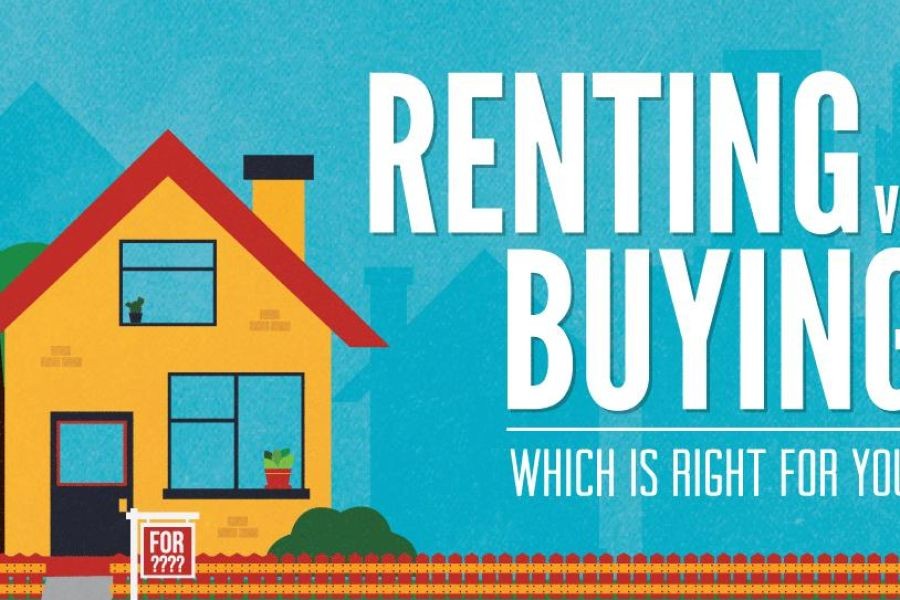New Zealand's picturesque landscapes and vibrant culture make it an ideal place to live, but when it comes to deciding between renting and buying a home, things get a bit more complicated. The real estate market here is influenced by a variety of factors, including economic policies and unique demographic trends, which can make this decision particularly challenging for Kiwis. With property prices soaring by 27% over recent years, according to Stats NZ, it's crucial for individuals to weigh their options carefully.
Expert Opinion & Thought Leadership
When considering the financial implications of renting versus buying in New Zealand, it's essential to factor in both current market trends and future economic forecasts. Property ownership has traditionally been seen as a cornerstone of financial stability. However, with the Reserve Bank of New Zealand implementing tighter lending criteria and the uncertainty of global markets, renting has become an increasingly attractive option for many.
Case Study: The Wellington Housing Market
In Wellington, the capital city of New Zealand, the housing market presents a classic example of the challenges faced by potential homeowners. With median house prices reaching $1 million, many are finding it difficult to secure financing. The rising interest rates further exacerbate this issue, making monthly mortgage payments significantly higher than average rental rates.
Problem: For instance, a young couple looking to buy their first home found that their mortgage repayments would consume over 50% of their monthly income. This financial strain was unsustainable given their other living expenses.
Action: Instead of purchasing, they opted to rent a similar property, which allowed them to save and invest elsewhere. This decision provided them with greater financial flexibility and less stress.
Result: Over two years, they managed to save a significant portion of their income and invested in diversified assets, which yielded a 12% return annually.
Takeaway: Renting in high-demand areas like Wellington can offer financial advantages, allowing individuals to invest in other growth opportunities while avoiding the burdens of homeownership.
How It Works (Deep Dive)
When weighing the decision to rent or buy, it's crucial to conduct a thorough analysis of current market conditions, personal financial health, and future goals. Below are key points to consider:
Pros and Cons of Buying
Pros:
- Equity Building: Homeownership allows you to build equity over time, potentially increasing your net worth.
- Stability: Owning a home provides long-term stability and the freedom to make modifications.
- Tax Benefits: Mortgage interest deductions can offer significant tax savings.
Cons:
- High Initial Costs: The upfront costs of purchasing a home, including down payments and closing fees, can be substantial.
- Market Risk: Property values can fluctuate, impacting your investment's value.
- Maintenance Costs: Homeowners are responsible for all upkeep and repairs, which can be costly over time.
Pros and Cons of Renting
Pros:
- Flexibility: Renting allows for easier relocation and less commitment.
- Lower Upfront Costs: Initial expenses are generally limited to a security deposit and first month's rent.
- No Maintenance Responsibilities: Landlords typically handle repairs and maintenance.
Cons:
- No Equity: Rent payments do not contribute to personal wealth accumulation.
- Uncertainty: Rent increases or lease terminations can disrupt living situations.
- Limited Personalization: Tenants often face restrictions on property modifications.
Common Myths & Mistakes
Many Kiwis hold misconceptions about homeownership and renting. Here are a few:
Myth: "Buying a home is always a better investment than renting."
Reality: In high-cost areas like Auckland, renting can be more financially viable if the saved funds are wisely invested elsewhere.
Myth: "Renting is money down the drain."
Reality: Renting provides flexibility and the opportunity to invest in high-return assets, potentially outperforming real estate investments.
Myth: "You must own a home to be financially secure."
Reality: Financial security can also be achieved through diversified investments and strategic financial planning.
Future Trends & Predictions
Looking ahead, several trends are emerging in New Zealand's housing and rental markets:
Increased Urbanization: More people are moving to urban centers, which could drive rental demand and increase property prices in these areas.
Remote Work Influence: The rise of remote work may increase demand for rentals in suburban and rural areas, where housing is more affordable.
Regulatory Changes: Future government policies aimed at stabilizing the housing market could impact both rental and purchase decisions.
According to a report by MBIE, by 2030, New Zealand will see a shift towards smaller, more affordable housing units, driven by changing demographics and economic pressures.
Conclusion
Ultimately, the decision to rent or buy in New Zealand hinges on individual circumstances and financial goals. While homeownership offers stability and potential equity growth, renting provides flexibility and less financial burden, allowing for investment in other areas. As the market continues to evolve, staying informed and adaptable will be key to making the best financial decisions.
What’s your next move? Are you ready to explore your options in New Zealand’s dynamic housing market? Share your thoughts and experiences below!
Related Search Queries
- Is it better to rent or buy in New Zealand?
- New Zealand housing market trends 2025
- Cost of living in Auckland vs. Wellington
- Best investment strategies in New Zealand
- How to save for a house deposit in NZ
People Also Ask
What are the biggest misconceptions about renting in New Zealand?
One common myth is that renting is always financially disadvantageous. However, statistics show that in many cases, renting can be more cost-effective, allowing for greater investment in other financial opportunities.
How does the current housing market impact renting decisions in New Zealand?
With rising property prices, renting offers a viable alternative for those unable to afford a home. It provides flexibility and the opportunity to invest elsewhere.






























shanifish6820
3 months ago